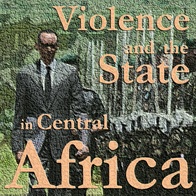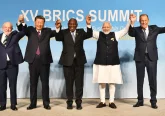
The year 2002 marked the initiation of discussions concerning the suitability of invoking Article 1C(5) of the 1951 Convention Relating to the Status of Refugees to deal with the protracted Rwandan refugee caseload. This Article permits a declaration by countries and UNHCR that ‘the circumstances in connexion with which he [the refugee] has been recognised as a refugee have ceased to exist’, and therefore ‘he can no longer…continue to refuse to avail himself of the protection of the country of his nationality.’ In short, the ‘ceased circumstances’ Cessation Clause constitutes an international validation of positive change in post-conflict governance and the meaningful re-establishment of the citizen-state bond, as well as providing a legal normative framework for the repatriation of former refugees.
It is easy to see why the GoR so earnestly pushed for the invocation of the Cessation Clause throughout the Noughties. Internal and external legitimacy was waning under the weight of mounting evidence that domestic politics was partisan and exclusionary at best, authoritarian and murderous at worst. The regime wanted to repatriate potential opponents back to within the state’s jurisdiction. Achieving international consensus over the suitability of refugees returning to Rwanda was thus a potential way to refute accusations concerning human rights abuses within the country, and to exercise more control over possible critics. Controversially, the High Commissioner for Refugees announced support for the cancellation of status for all Rwandan refugees by the end of 2011. After seven years of lobbying and contestation, this therefore constituted a major victory for the RPF.
Celebrations were not, however, echoed by the country’s neighbours. The invocation of the Cessation Clause is within the jurisdiction of the responsible state parties, not UNHCR, whose role is restricted to making advisory recommendations on its suitability. As such, the organisation’s widely-publicised support of the Clause unsurprisingly antagonised states. For those with fractured relations with the GoR, such as the Democratic Republic of Congo, this was of little consequence. Due to the sheer complexity and politicisation of the refugee and migratory movements between the two countries, the ongoing animosity between the two governments, and the Congolese Government’s objections to the UNHCR-prescribed modalities for applying and implementing the Cessation Clause, this process was always likely to be a non-starter for Rwandan refugees in the DRC. The government of Congo essentially ignored the proposals. For the Government of Uganda (GoU), however, which maintains a much more idiosyncratic relationship with the regime in Kigali, outright public opposition to an UN-certified announcement of ‘peace, stability, and security for all in Rwanda’ was, and remains, completely unconscionable.
Thankfully for those Governments like the regime in Uganda which maintained scepticism towards the UNHCR’s de facto declaration that Rwanda was safe, amendments to the Cessation Clause were proposed in 2011. Due to covert state lobbying and overt NGO opposition, the Clause was altered to only apply to those refugees whom fled Rwanda between 1959 and 31st December 1998, and its proposed date for coming into force was pushed back to June 2013 to allow countries hosting Rwandan refugees additional time to establish alternative durable solutions[i] for refugees trying to avoid returning home. These changes came as a huge disappointment to the GoR, who responded with an apparent shift in strategy. With the repatriation of all its citizens now impossible – particularly the most vocal opposition activists who left Rwanda in the post-1998 period and were thus unaffected (in theory) by the Clause’s implementation – the Rwandan government shifted its approach to generously support a range of other initiatives and durable solutions in refugee-hosting states, for example the provision of passports to Rwandan refugees abroad from visiting delegations. Such a shift, seen in countries such as Zambia and Congo Brazzaville, was designed to alleviate any ongoing concerns of refugee-hosting countries about implementing the Clause in order to ensure a public, political consensus for its eventual invocation, and end the politically damaging speculation surrounding conditions within Rwanda and the Government’s true motivations in pushing for the Cessation Clause.
This strategy, which has effectively seen the GoR shift responsibility to Countries of Asylum for any delay in implementing the Clause, has nonetheless not proven advantageous for the GoU. Without excuses for delaying the Clause’s invocation (because of insufficient time or concerns about the GoR’s reintegration capacity should all refugees repatriate), the GoU has been forced to address its own domestic impediments to the Clause’s implementation. This has given new life to the political quagmire surrounding whether refugees can naturalise within the country. For multiple reasons, the Government appears loath to offer a definitive answer to this question. Though Rwandan refugees are de facto locally integrated within the country after decades of protracted exile, formally institutionalising their right to stay, access land, and engage in Ugandan politics is another matter. The GoR, concerned about the implications of thousands of disenfranchised Rwandans attaining citizenship of a country whose interests in the region it perpetually distrusts, has exercised behind-the-scenes pressure to prevent such a move. Furthermore, no Ugandan politician is likely to put their name to a campaign to naturalise a group of refugees with a history of political destabilisation such as Rwandan refugees have amassed in the Great Lakes region. Despite its positive implications for other protracted refugee caseloads in Uganda, UNHCR has therefore avoided engaging in this aspect of Uganda’s legal framework whilst looking for political openings to provide alternative legal statuses for these individuals elsewhere.
In the meantime, the GoU has publicly supported the eventual invocation of the Cessation Clause, much to the delight of the RPF, whilst both stalling on offering durable solutions to Rwandan refugees, and continuing to grant refugee status to those individuals crossing the border from Rwanda fleeing state-orchestrated persecution. Such a paradoxical situation appears, however, to be compatible with both states’ desired outcomes from the Clause. The GoR has achieved the agreement of its most important regional ally that Rwanda is safe for refugees to return to, which through the Government’s impressive public relations system can be used to both delegitimize those Rwandans continuing to apply for asylum abroad, and buttress the State’s claims to the changed nature of domestic politics. The GoU meanwhile has placated its neighbour by agreeing in principle to the Cessation Clause’s main tenets. This has eased RPF pressure, and allowed the relevant bodies in Kampala to retain some autonomy in responding to the old and new caseloads of Rwandan refugees in lieu of addressing their own domestic challenges.
And so, who loses? The Rwandan refugees, for whom the nuances of this bilateral politicking are lost in the plethora of rumours and misinformation which percolate their communities and create a sense of impending loss of protection and probable repatriation. Ironically these are precisely the unintended outcomes, nonetheless created by the symbolic politics now dominating the Cessation Clause negotiations.
[i] There are currently three durable solutions designed to end refugee status by providing these individuals with an alternative legal status. These are: voluntary repatriation to the country the refugee originated from; local integration in the country they sought asylum within; or resettlement to a third country when the previous two options are untenable.








1 Comment
Such a shame that refugees’ lives are being used as pawns in a petty posturing ploy by people in a position of political power